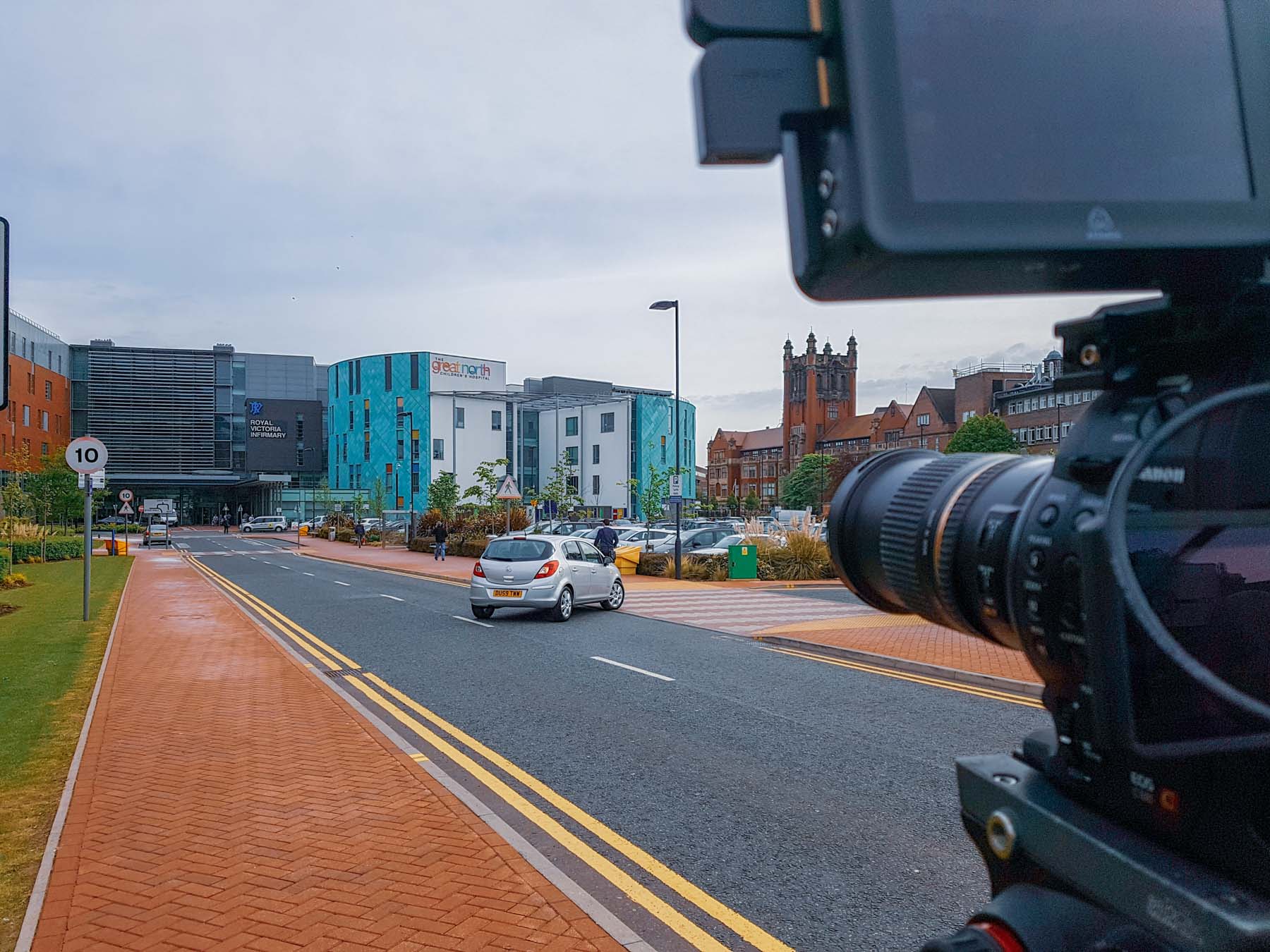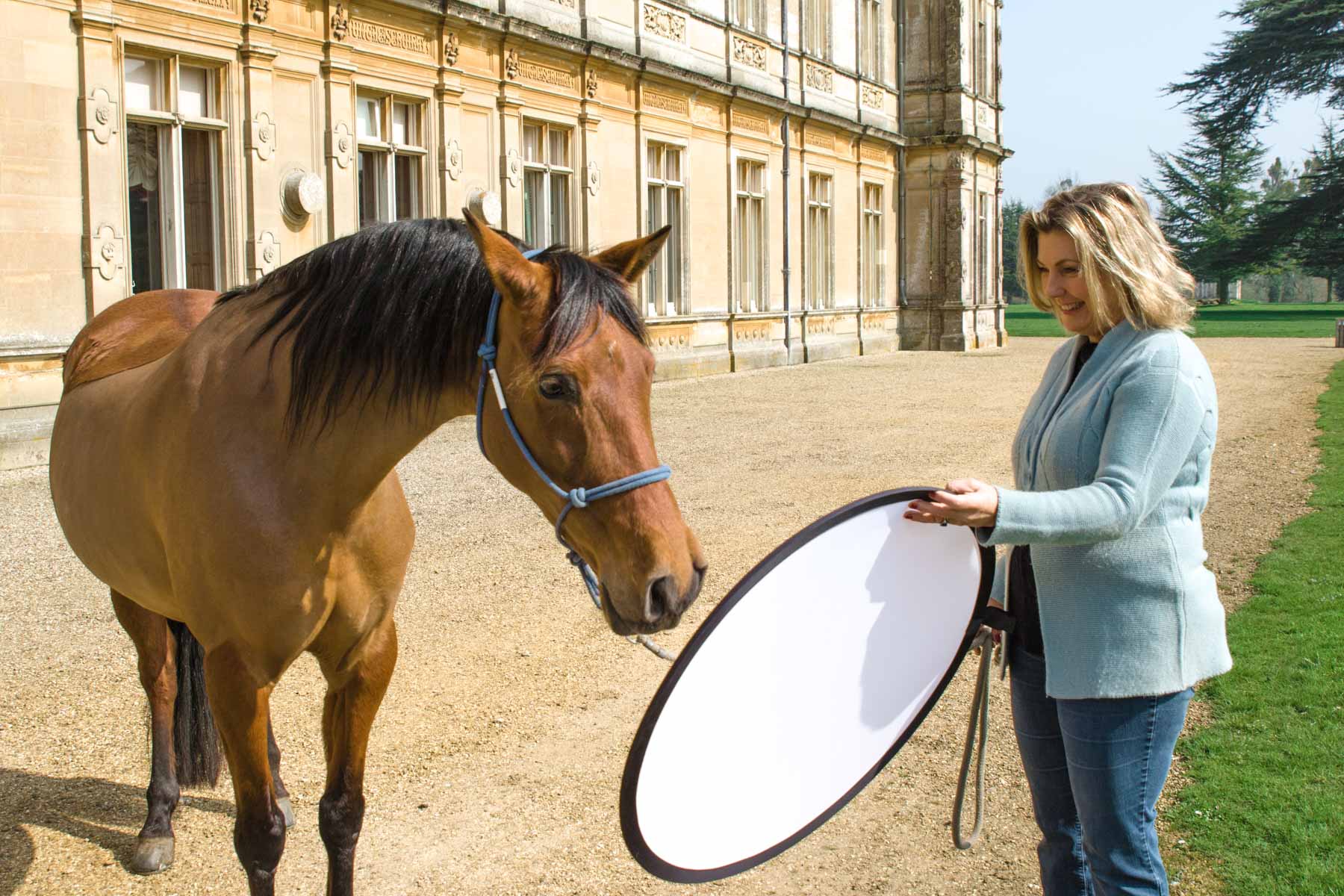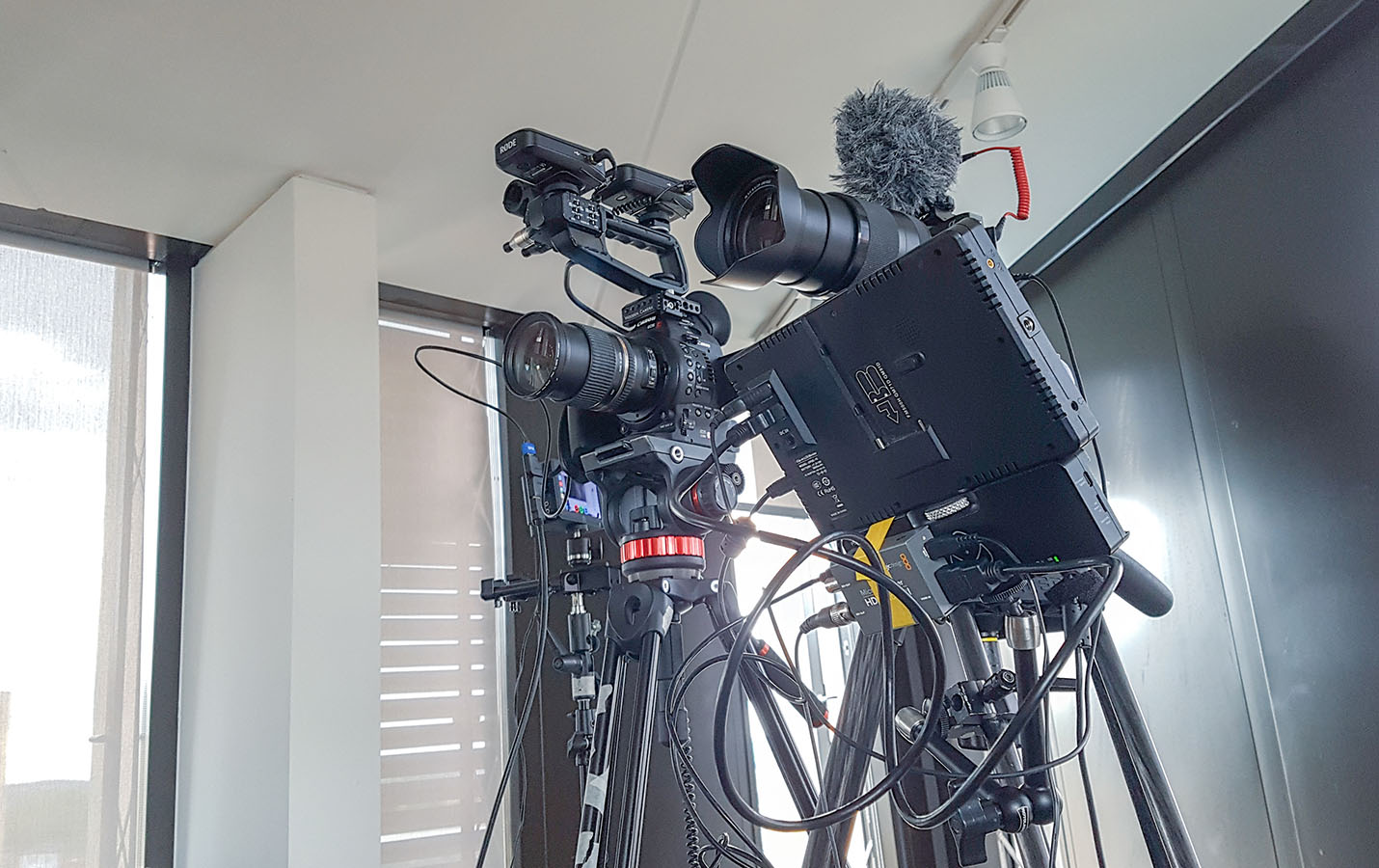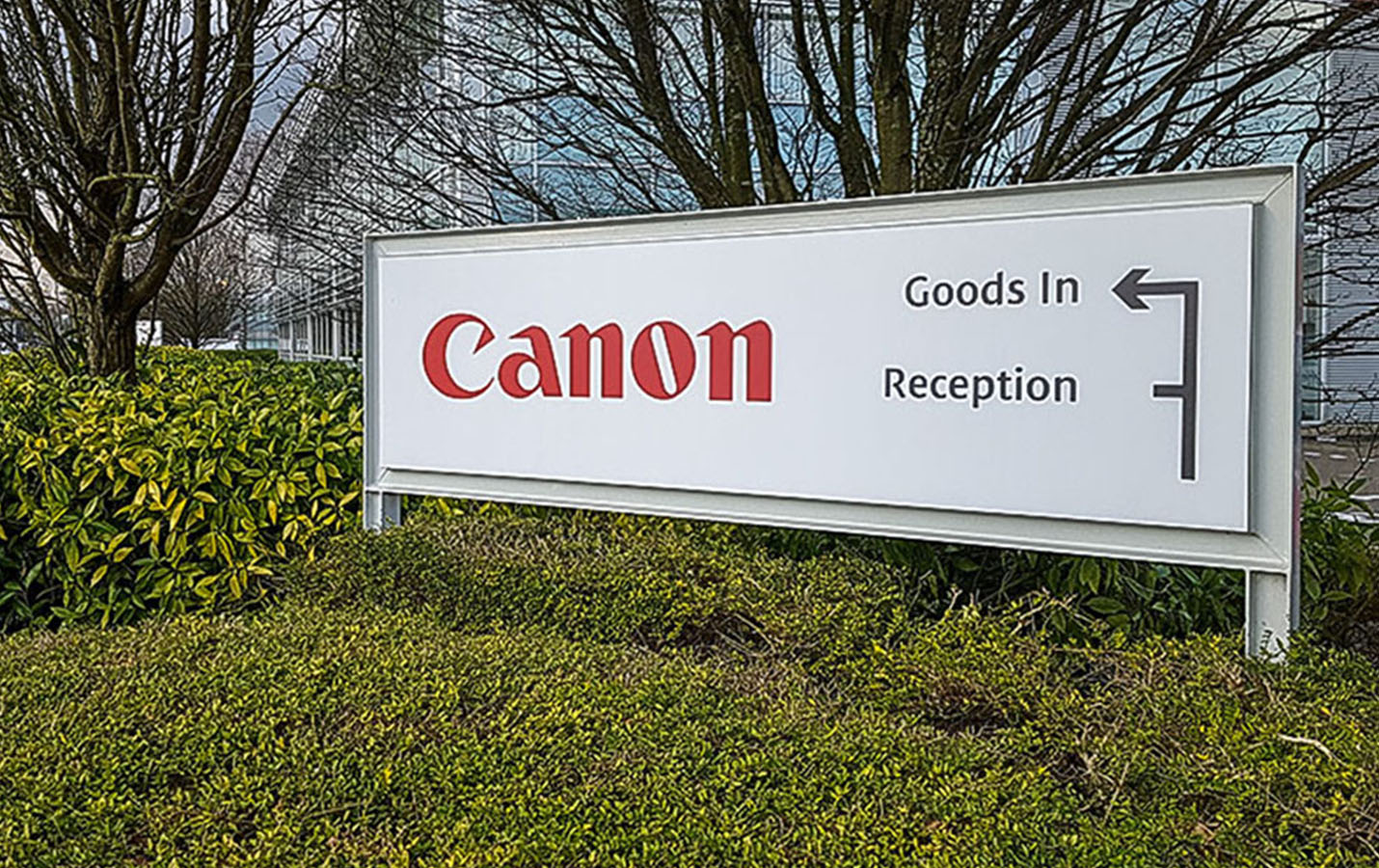
When Disaster Strikes!
SPOILER ALERT: This is going to be one of those honest blog posts.
It is probably not something that many video production companies admit to, but here it goes. On a shoot a couple of weeks ago, we had our first accident.
How the Day Started
The shoot we were on was for one of our regular clients. We visit them about once a month to produce videos for them, so we had a plan in place for the day. Nothing was out of the ordinary.
We were filming in an orangery, which was stunning and filled with so many different fruit trees and flowers. It is a stunning building. It was our first set up for the day and whilst attaching a mic to an interviewee, the tripod which had our camera, monitor and mic packs fell over onto concrete. This was 9.30am.
From our perspective, it was a living nightmare that all camera operators wake up in the night in a cold sweat about. Such a nightmare I didn’t actually take a photo of it in all its fallen over glory!
There were many factors that triggered this nightmare for us but the harsh truth (and this is where I said that this was going to be one of those honest blog posts), this was our fault. It was a case of too much loaded onto the tripod and the middle support column not being completely compressed which meant that the tripod took a tumble.
When we picked the camera up, we realised some serious damage had been done. More specifically, the LCD screen on the back of the camera now looked like this:
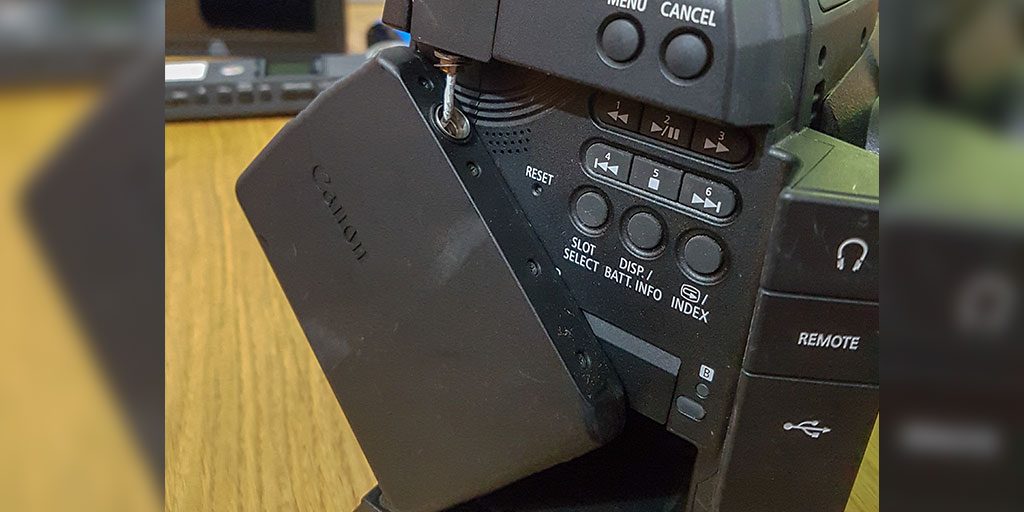
Did we Stop Filming?
Now you may be thinking at this point that the shoot was over. The truth of the matter is though, it wasn’t. The damage, while substantial, was cosmetic. So in true Star Trek style, we taped the LCD screen back on to the camera so it didn’t completely detach – and we carried on filming.
What’s important here is that a client is never paying you for equipment. They are paying for your time and when something goes wrong, it is your job to make sure that you fix that problem then and there and carry on.
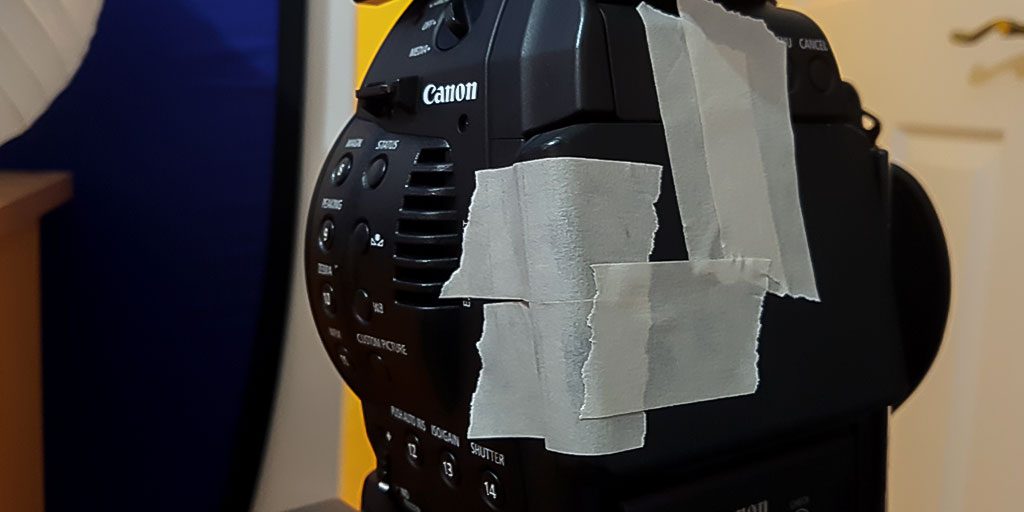
We did have some problems that continued throughout the day. Not being able to use the LCD screen (or the external monitor without holding the cable in) was troublesome but actually, we got everything in the can that was on the schedule. We even finished with 15 minutes to spare!
Back in Action in 7 Days!
It is at this point in the blog that I have to say that if anyone reading this has or knows someone who owns a Canon camera, then get it repaired by Canon. The customer service is fantastic and they turned around the repair of our main camera in under a week.
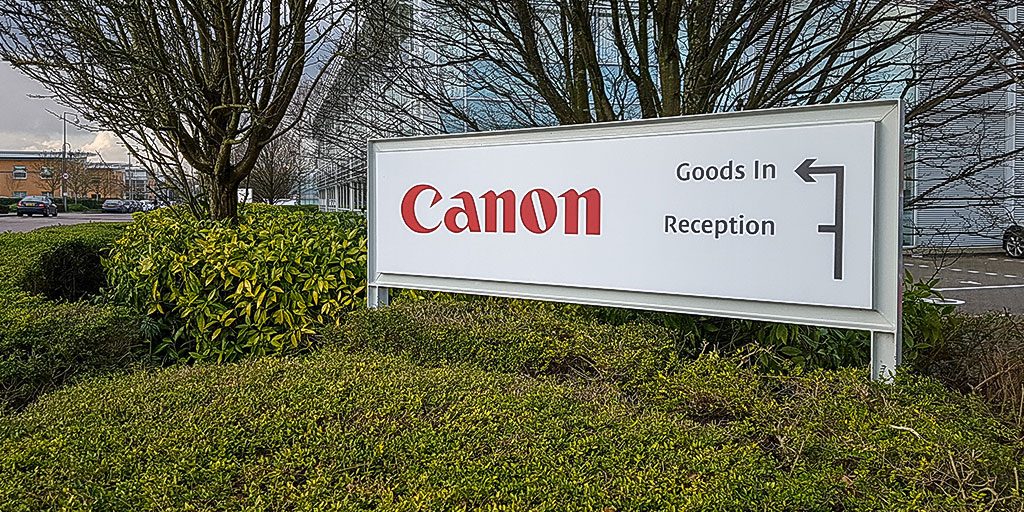
It went in on a Wednesday and was ready for collection the next Tuesday, all ready for a shoot the next day. I was stunned and amazed at the quality of the repair itself and that it took no time at all!
Here we are on a shoot the day after we picked up the camera from the Canon Repair Centre. Good as new!
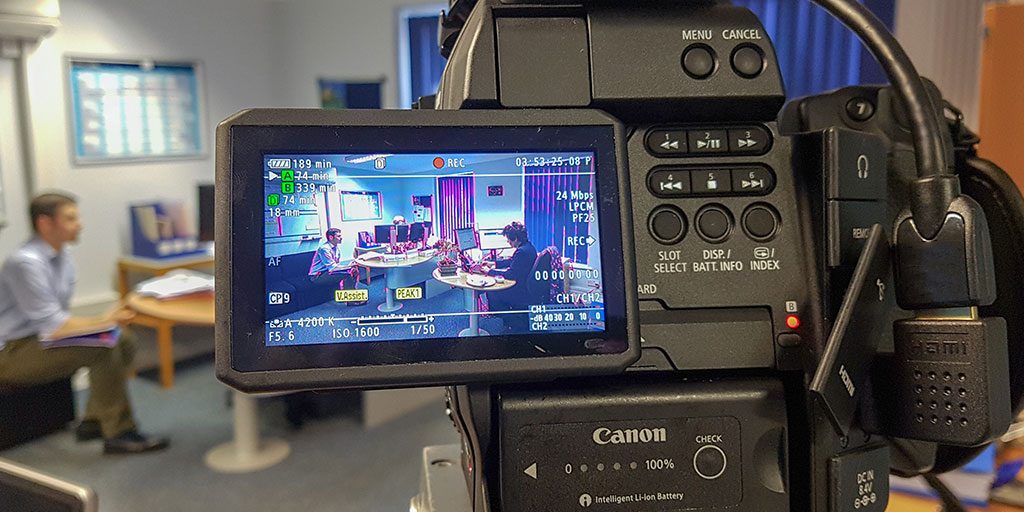
What We Learnt from This Accident
The thing that I’ve always said – and still say to all clients – is have a plan for the backup plan to go wrong. For us, this doesn’t just extend to what we’re shooting on the day or even how we shoot a video, it comes down to being prepared for any eventuality.
Even if we are doing a single camera shoot, we’ll bring two cameras. Why? Well, if the above hasn’t convinced you, it’s because accidents do and can happen.
As I said at the beginning of this post, this was our first ever accident on a video shoot. Indeed this was my first ever accident in my 10 years of working in video production. Nothing like this had ever happened to me personally before but even though I was staring down at “Camerageddon”, the important thing was to remain calm – patch it up and carry on.
The worst thing I could’ve done was to go into a mad rage and start swearing and declaring that the “end is nigh”. Aside from being completely unprofessional, it will do you no favours in the eyes of the client.
In that moment I could have lost them forever in how I reacted to it. I stayed calm, got the tape out, put the kettle on and went over what we still had left to shoot throughout the day.
Staying calm and professional is the most important thing we have taken away from this experience and now certainly goes into all our training and risk assessment of a location before a shoot. It was a fluke accident that shouldn’t have happened. Just because it shouldn’t have happened, didn’t mean it couldn’t happen.
That concludes this brutally honest blog post. Keep up to date with us on Twitter and Instagram to see more behind the scenes of what goes on our shoots. We promise no more disasters!

